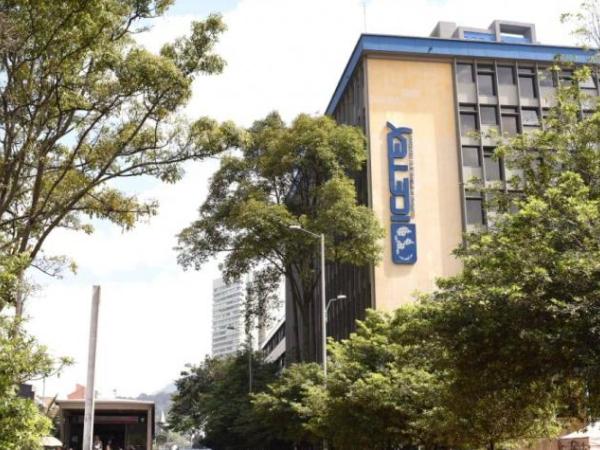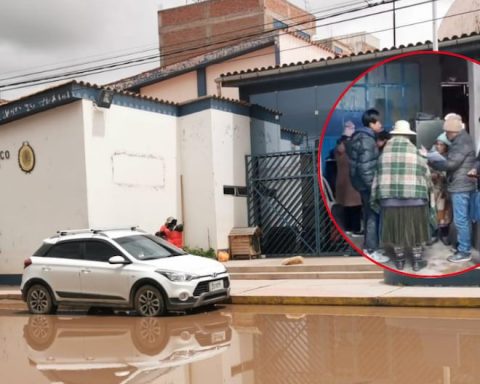Expectant and confident that the parliamentary dialogue will come to fruition in pension matters, DC deputy Alberto Undurraga declared, who hopes that the political forces represented in Congress can agree on three principles that, in his opinion, are key to improving future pensions and present, such as solidarity, tripartite financing and free choice. Of these principles, there are two that will stress the legislative debate: what is meant by solidarity and what percentage should be allocated for this purpose and, likewise, the possibility that each contributor determines which entity manages their savings.
The deputy for district 8 (which includes the communes of Colina, Lampa, Quilicura, Pudahuel, Tiltil, Cerrillos, Estación Central, Maipú) stated that in Chile Vamos there is greater awareness of the value of introducing greater degrees of solidarity not only to to benefit future retirees, but also to favor those who are already in that condition, especially women, whose power to save has historically been lower -or rightly non-existent- due to a culturally oriented work towards housework and of care, a situation that has prevented them from participating in the labor market and contributing as the vast majority of men have done.
“As a bench we made a proposal at the level of principles last April. The question is whether we are capable of agreeing on three key principles: solidarity, tripartite financing and free choice. If we agree on these three principles, then in parliament we will begin to put percentages on it, especially the additional 6% of employer contribution proposed by Minister (Mario) Marcel,” said Undurraga, a member of the Labor and Social Security commission of the Lower House, whose proposal could well complement what was presented by Minister Mario Marcel.
The reform sent to Congress by the Government proposes that the additional 6% be allocated entirely to intra and intergenerational solidarity, a proposal that is rejected by a large part of Chile Vamos, which proposes to allocate this employer contribution in its entirety to individual accounts managed by the AFPs. At the moment, some deputies, such as RN Frank Sauerbaum, have opened up to allocating 3% to solidarity, as proposed by the failed reform of former President Sebastián Piñera, channeling solidarity preferably through the Universal Guaranteed Pension (PGU) , which is financed on account of general taxes. For Chile Vamos, the employer contribution entails, in fact, a tax on work, while for the DC bench it constitutes the necessary contribution that completes the tripartite financing scheme that supports every social security system in the world: the worker’s contribution (10% base), the tax contribution (PGU) and the contribution from employers (6% additional).
“With the assumed principle of solidarity, we can now discuss the numbers. We are open to reaching a solution. No one should entrench themselves in ideology because we need to reach an arrangement that can be 3-3, that is, three for individual accounts and three for the common fund, which is more or less the floor that emerged with the previous government’s project; either a 4-2 in one direction or another, or take 6% for solidarity but allocate a percentage directly to the accounts of retirees without going through the AFPs, and in that sense we take responsibility for what the right says , in order that the important thing is not the administration but the result… In reality there are multiple combinations. The important thing is that in Congress there is a will to reach an agreement”, he pointed out.
“Another point of our proposal is one that is not contemplated in Minister Marcel’s proposal: free choice,” added the deputy. “That is to say, that the contributor decides under which regime his savings are managed. This is an issue that has been made invisible in the media, which is our proposal to separate money management from investment management, and this is another knot. Today the AFPs do both. The idea is that with respect to individual savings, each contributor decides on the management scheme, trying to open various investment mechanisms: the contributor can choose between a private or state entity, such as an AFP, or if he wants he can choose a cooperative, etc.”, he added, while highlighting the importance of introducing greater regulations that tend to limit the losses for contributors due to risky investments by the AFPs.
According to Undurraga, a good reform cannot focus only on amounts. “The point is that the system, we believe, should have a separate administration. That is, separate investment from collection, collection, payment and customer service. The State can do it, or it can be done by a private entity through bidding, such as the entity that manages the unemployment insurance. This is based on a matter of economies of scale, because with this separation we also lower the costs of the system. For that we propose to create the National Pension Corporation, whose autonomy would be similar to that of the Central Bank”, he indicated.
The DC deputy affirmed that the government should “talk with the opposition because, I repeat, I see the will to talk. The idea is to build broader agreements, that is why we suggested to the Government that it open channels of conversation. We are open to listen to everyone. For example, we are ready to discuss what the People’s Party proposed, which is the possibility of requesting a self-loan with your own pension savings, and of course we are addressing Chile’s concerns. We are going in the sense that the public entity can put their hands in the money of the workers, or that solidarity is an incentive for others to stop contributing. In this sense, we also open ourselves to talk about the possibility of conditioning the delivery of a solidarity contribution to a minimum of contributions, or limiting it based on a density of contributions… in short. There are many things to talk about, and for that we must put aside ideology and concentrate on making the numbers spread, ”he added.
“There are other principles on which we all agree: transparency, sustainability and participation of contributors in the new pension system that we are going to have. That is already an important advance, so now we go through the other principles and then we go to the percentages and the details, ”he concluded.


















